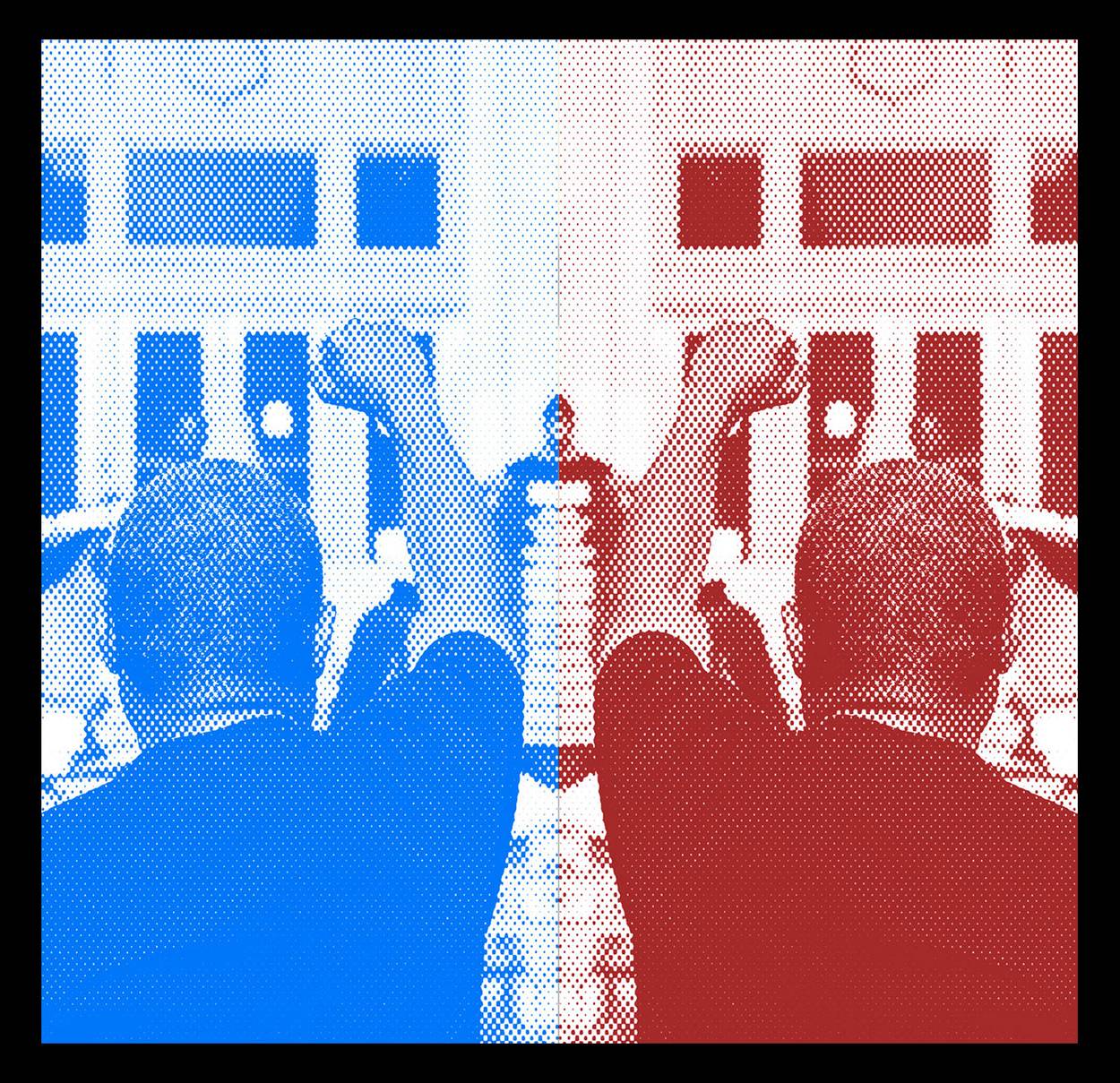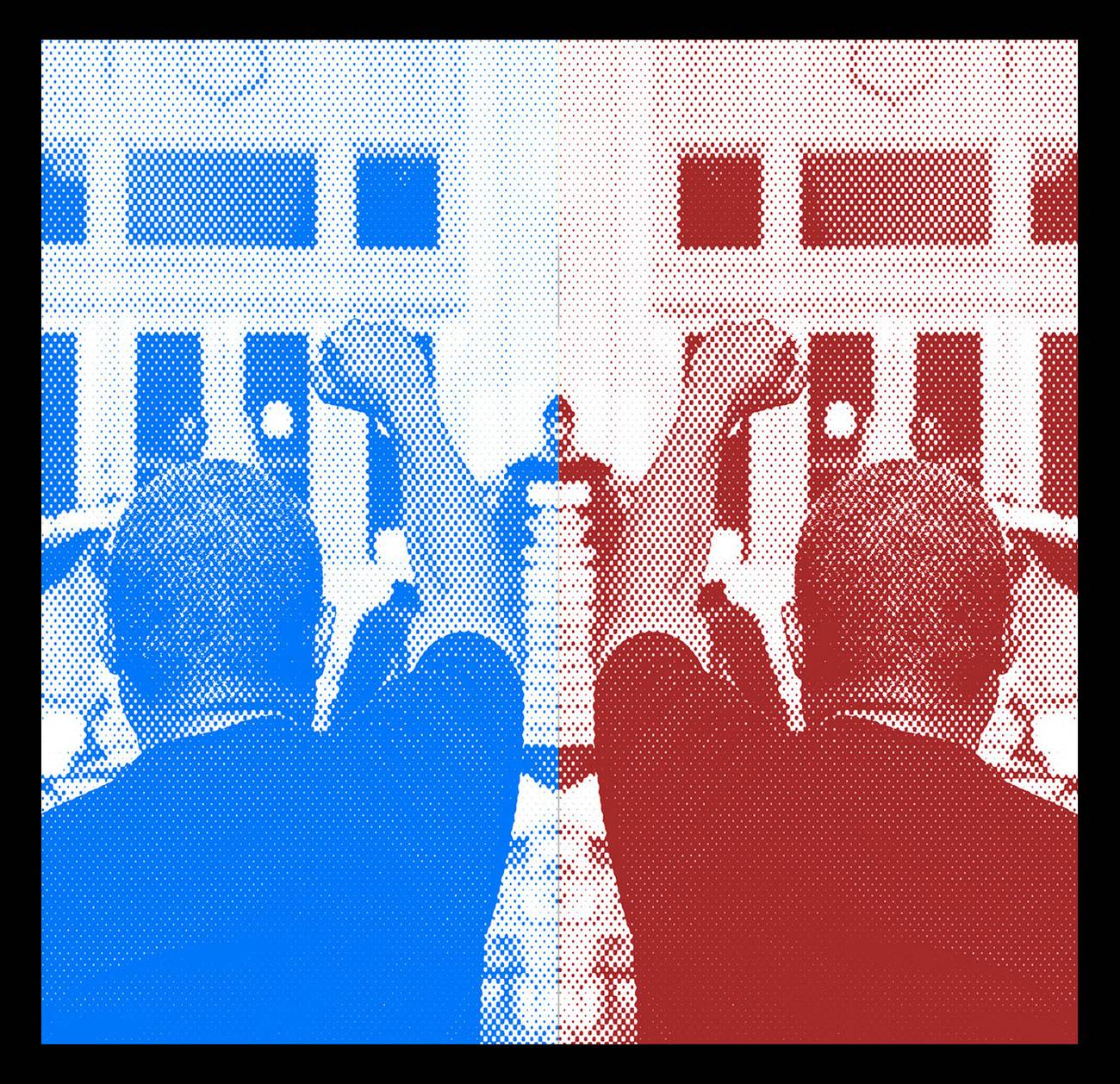In my many decades as a mixed African American and Jewish American, I’ve never felt the need to choose between the two—until this past week. Not until I saw images such as a paragliding activist carrying a Palestinian flag in a post on X from the Chicago chapter of Black Lives Matter. Or Instagram screeds from Black “educators” like Ericka Hart—celebrated for her queerness in Vogue last summer—who’s spent the past few days championing the Hamas terrorists who would think nothing of slicing her queer body to shreds.
Or Shaun King, the long-dubious, pro-Black activist who’s apparently forgotten about Black people as he devotes his entire social media presence to pimping, inexplicably, for the Palestinian cause. And let’s not forget the president of New York University’s Law School Bar Association, Ryna Workman, who, in a Student Bar Association newsletter, described last weekend’s slaughter in Israel as “necessary,” before declaring she will “not condemn Palestinian resistance.”
Don’t get me wrong, I could never really choose between my Blackness and Jewishness anymore than I could choose between my two sons. But it’s because I am Black that I know as a Jew that Hamas hates me and wants me dead.
I wish I could say I felt more conflicted about this crisis, but I don’t—because it’s not a crisis at all. After all, I am not merely Jewish, I am a Jew. And for a kid who never really felt fully either Black or white, being a Jew has been the only identity I’ve never questioned. It’s not just how I feel, it’s who I am, a constant reminder of belonging to something beyond space and time and collective memory.
But because I am also Black—descended from slaves who lived life in shackles—I have no misconceptions about human brutality and understand my duty to protest it, particularly here and particularly now.
Back in 1964, Supreme Court Justice Potter Stewart was asked to give his definition of obscenity and pornography. Reluctant to reduce himself to crass descriptors, Potter uttered the now famous phrase, “I know it when I see it.”
Hate pretty much works the same way. And I know this because I’m both Black and Jewish. I know this because I’m born from hate on both sides—and today, to my despair, one side (or at least the most vocal elements of it) teeters on the brink of moral failure.
Blame it on intersectionality, the voguey mantra that likes to pretend that identity politics is a game of mix-and-match. But real identity movements—whether the quest for Black liberation, the battle for marriage equality, or, yes, the Palestinian struggle—demand clear and unambiguous moral certainty, not bankruptcy. The kind of certainty those like King and Hart and BLM and Workman do not possess, and most likely can never possess as evidenced by their championing of Hamas’ baby-killing bloodbath.
After all, moral certainty has been in short supply as BLM raided its own treasury to fund one of its founders’ lavish real estate portfolios. Certainty has also been lacking for Hart, who’s distilled her disturbingly “kinky, poly, cancer-warrior” persona into a lucrative spin on the lecture circuit with speeches starting at $20,000 a pop. And of course there’s King, who despite raking in hundreds of thousands from his own social justice nonprofit, has begged his 3 million social media followers to both pay for his medical bills and move him into a new home.
When you’re both Black and Jewish, separating friends from frauds is not just a skill. It’s a literal act of survival. And Hart and King and those #blm bandits are no friends to anyone besides the folks funding their ride.
As for the fraudsters, when you’re both Black and Jewish you can spot them a mile away. Preachy performative “white-ally” types who demand diversity—except when it comes to the diversity of thought. Or hectoring, haranguing #blm types who command conformity, especially when it gets them likes—and paid. Self-appointed and often credentialless, these tricksters trade in the hate they so claim to combat, convinced of their own ideological superiority while shielded from dissent behind the glow of their smartphones.
Along with the sheer economics at play is the question of motivation. With no real connection to either Israel or Palestine, why have Black social justice leaders like King so aggressively chosen one side over the other? Because I am Black and Jewish, I know why: hate. There is no older—or lazier—hate than antisemitism, the go-to scourge for millennia now updated (and upgraded) under the facade of anti-Zionism and the liberation of Palestine.
Paraded as ideological affinities, such hate also serves to obscure the failings of social justice charlatans like King and Hart and #blacklivesmatter. Although noble in intent, these groups have achieved little more than self-enrichment and headline-hogging, while Black communities nationwide succumb to record homicide rates and rampant unemployment.
Because I am Black, I know who my people are—and my people, at least for today, face annihilation.
Where are the cries for justice for African American children, now 100 times more likely than white kids to be victims of gunfire? Where are the “days of rage” for Black opioid overdose deaths, which are now four to six times greater than those of white users? Why is the hate directed at Jerusalem when there’s so much to despise right here at home?
Folks like me should never be forced to choose between their identities, but the current crisis in the Levant offers no alternative. True, there are plenty of African American leaders speaking stridently for Israel. But they’ve been drowned out by progressive poseurs for whom ignorance and hate are their only competitive advantages. The war in Israel may only have just begun, but the hatred fueling it has existed for centuries. Because I’m both Black and Jewish I know this kind of hatred when I see it—and today this hatred has never been more real.
The Gaza attacks have changed me. For the first time ever, I now feel afraid. Afraid as a Jew, even though most Americans rarely think of me as Jewish. Afraid as a Black man, because I have little doubt that my life is equally worthless to the generations of bigots who’ve made America my country.
But I am not afraid to speak my truth, to declare that activists who may look like me absolutely do not speak for me. Jews of color have become particularly easy targets for TikToking Israel-phobes who insist racism in the Jewish community is proof of Judaism’s inherent intolerance. Instead, it’s merely proof that Jews are the things these dimwits want to deny most about us: We are human, fragile, imperfect.
But take it from an actual Jew of color: I’m fine with the Jews right now, thank you very much. I have no other choice. I want no other choice. Because I am Black, I know who my people are—and my people, at least for today, face annihilation.
When you’re Black and Jewish you learn early to blend in, mind your business, and choose your words wisely. You need to be “a million different people to a million different people,” as my wise Ashkenazi mother would say. Of course, for me, those people will always include Black people because I am a “Black people.”
But for once, filled with anguish, I will allow myself to set aside one identity for another—momentarily, ephemerally, and heartbreakingly. I never imagined I’d feel this way. But I never imagined I’d see people like King or Hart championing genocide as it’s literally taking place. They are not me. They will never be. And for today, at least, I choose to not be them.

